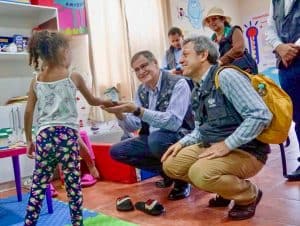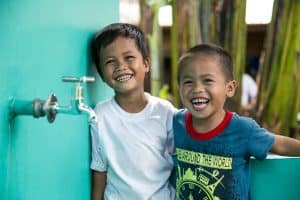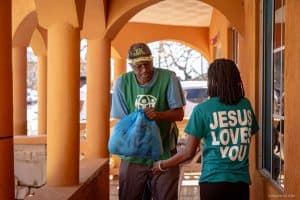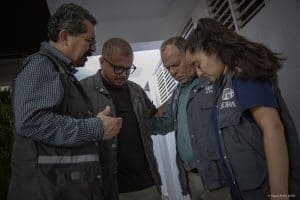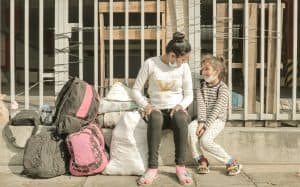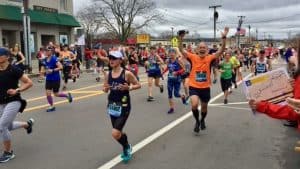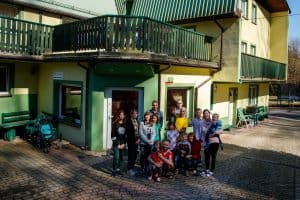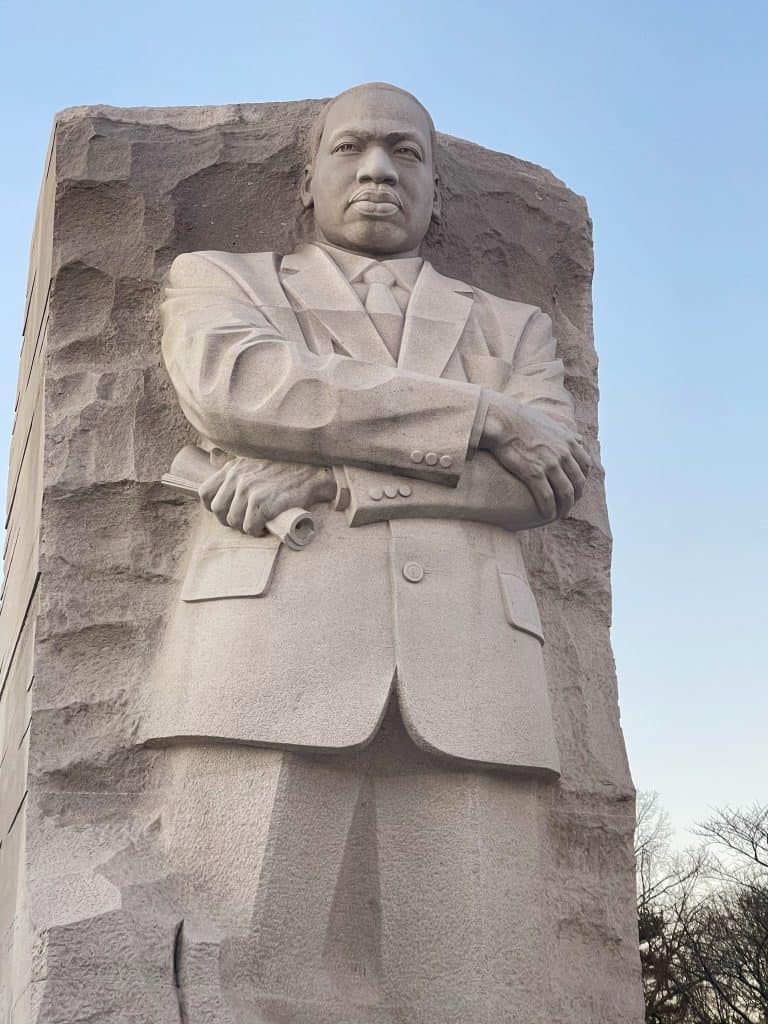
Martin Luther King, Jr. described poverty as a monstrous octopus that “projects its nagging, prehensile tentacles in lands and villages all over the world.” This is the beast ADRA Connections volunteers are fighting.
ADRA Connections volunteers are partnering with communities to fight this monster. Just ask Kusi.
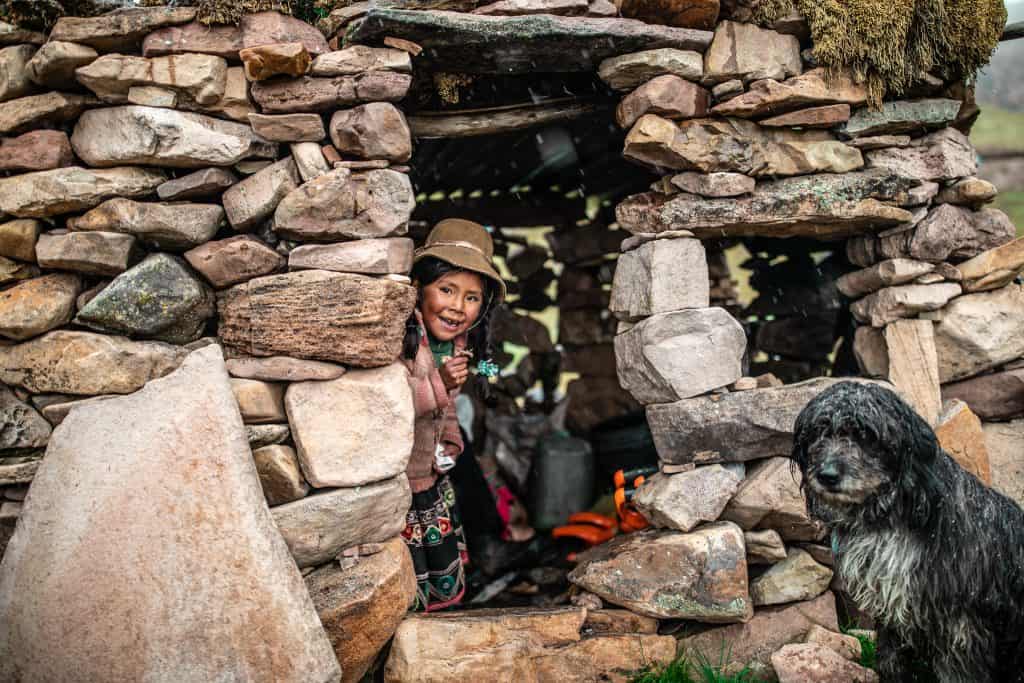
Kusi is part of a transient herder community that lives in the Andes Mountains in Peru. To meet her, a group of ADRA Connections volunteers traveled for miles through the mountains. They traveled until the pavement ended, and then the group continued along a dirt road until that ended as well. But the journey was not over. For another mile and a half, the volunteers walked, carrying solar panels and other equipment on their backs.
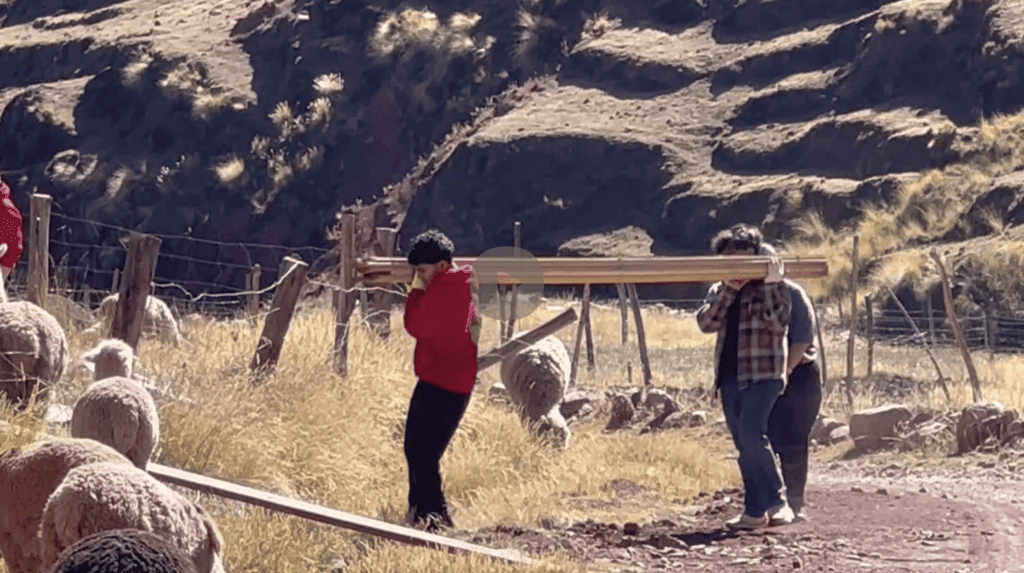
At 17,000 feet, the volunteers were above the tree line, where the air is thin. Condors flew overhead while llamas and alpacas bounded along the rocky terrain. Finally, they arrived at the community where they would be working and met Kusi (which means “joy” in the Quechuan language).
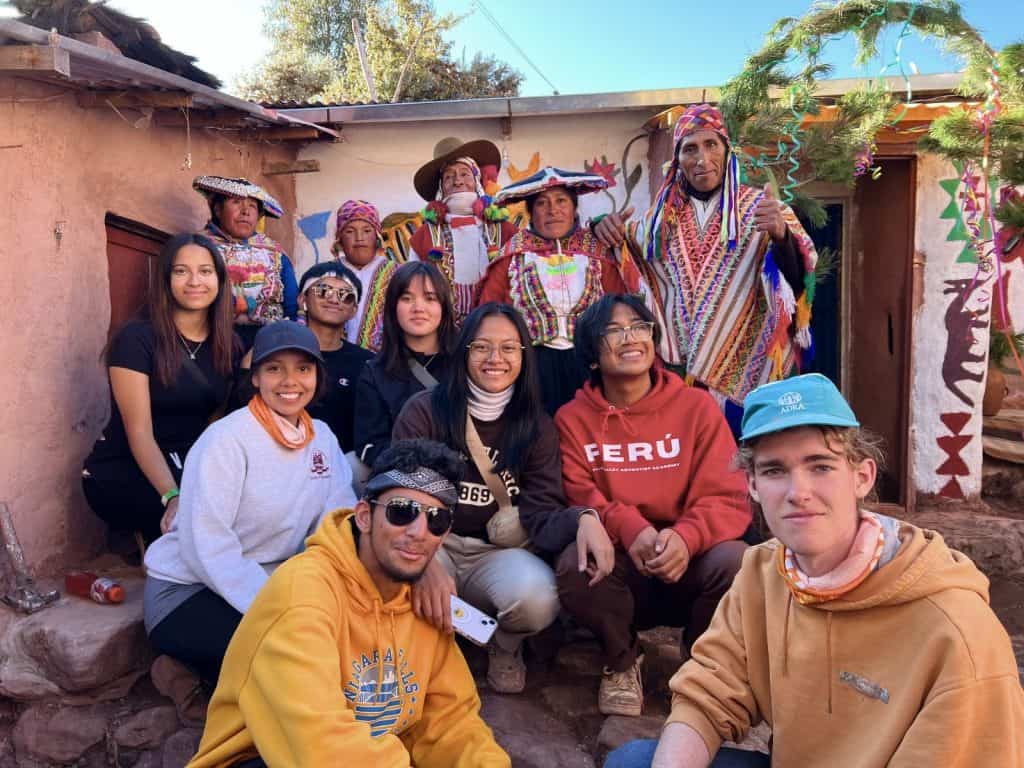
When the volunteers first met Kusi, she lived with her family in a simple mud-brick home with no electricity. Even this was a step above what many of her mountain neighbors live in. As transient herders, many families like Kusi’s, live in homes that are nothing more than piles of rock covered by a tin sheet.
But things are changing. The nomadic lifestyle is difficult, particularly for children. Some common challenges are access to reliable health care, lack of clean water, and limited access to education. Community leaders who realize these drawbacks to their transient herder lifestyle are ready for a change, and ADRA Connections groups are ready to help.
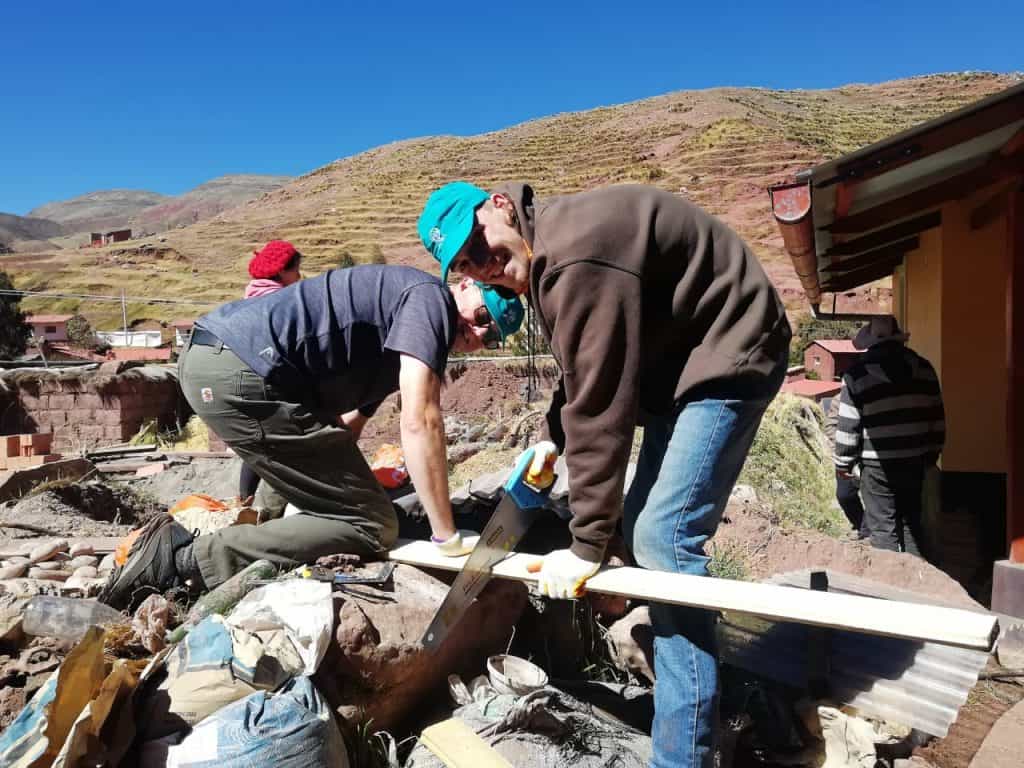
When communities like the one Kusi lives in reach out to ADRA, the organization is ready to help. However, because ADRA’s work is community-led, before volunteers can arrive to assist, the community must come together to build some permanent structures. This often becomes a community endeavor, where many people come together to make the straw-and-mud bricks used to construct these new permanent homes.
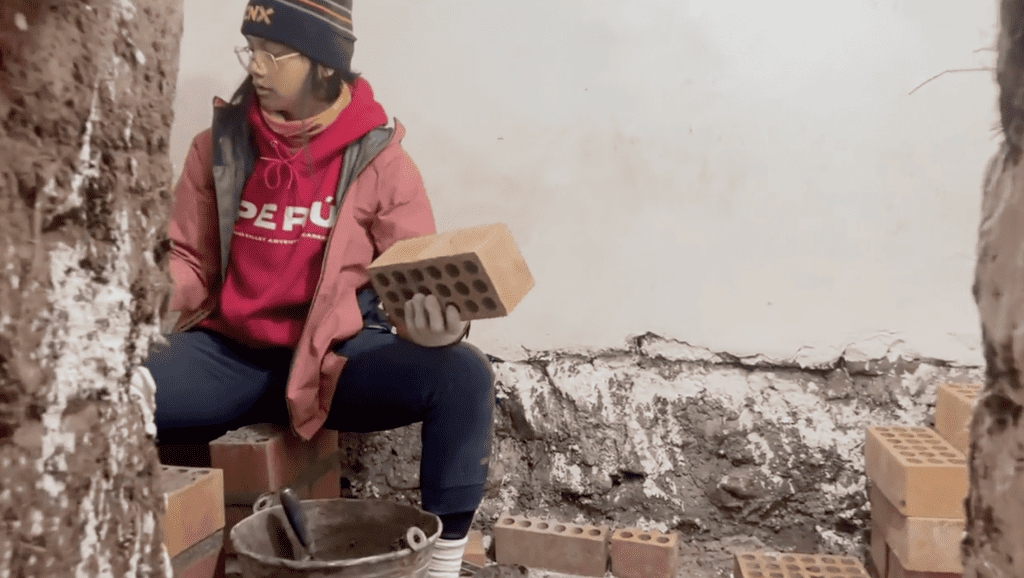
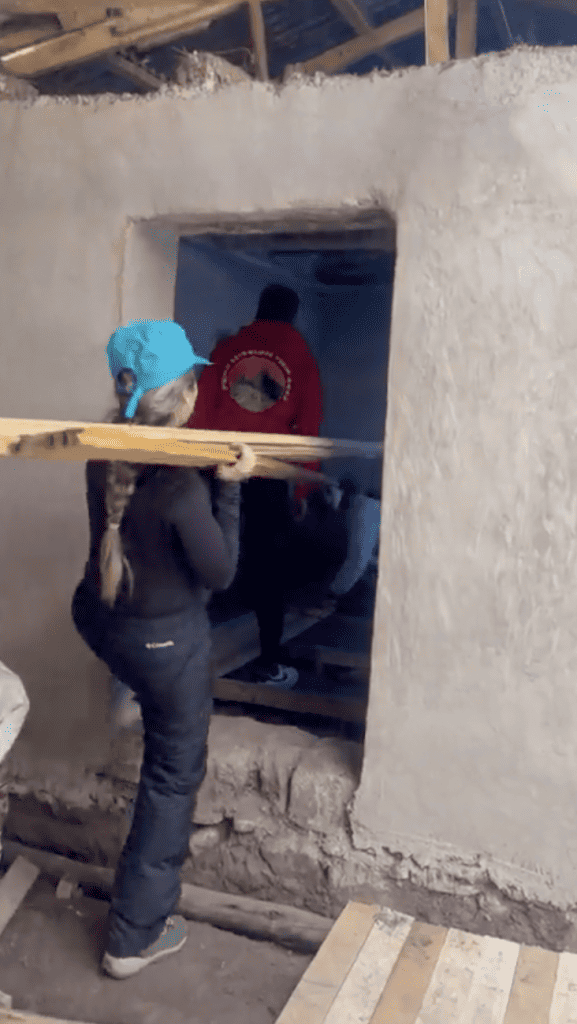
While permanent homes are a step up from transient houses, they still have several drawbacks. Nights are cold in the Andes, often dropping below zero and making conditions hazardous. The sun also sets early. With no light in the homes, children can’t do homework or study, and adults can’t sew the beautiful handmade crafts they create from alpaca wool, which, along with growing potatoes, is their source of income. Smoke and soot from indoor fires cause respiratory issues. Furthermore, waste leaks into the water supply without adequate bathroom facilities, causing chronic stomach problems.
That’s when ADRA Connections volunteers step in to help the community. Carrying solar panels, smokeless stoves, and other goods up the Andes is difficult, but having many hands makes the task lighter.
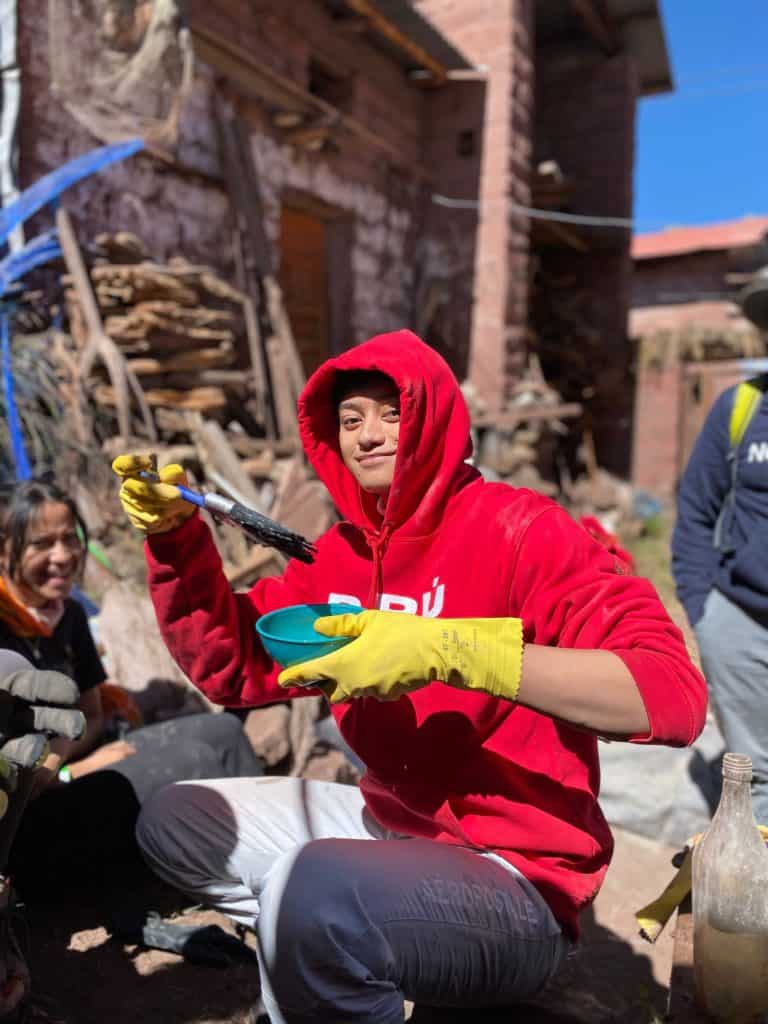
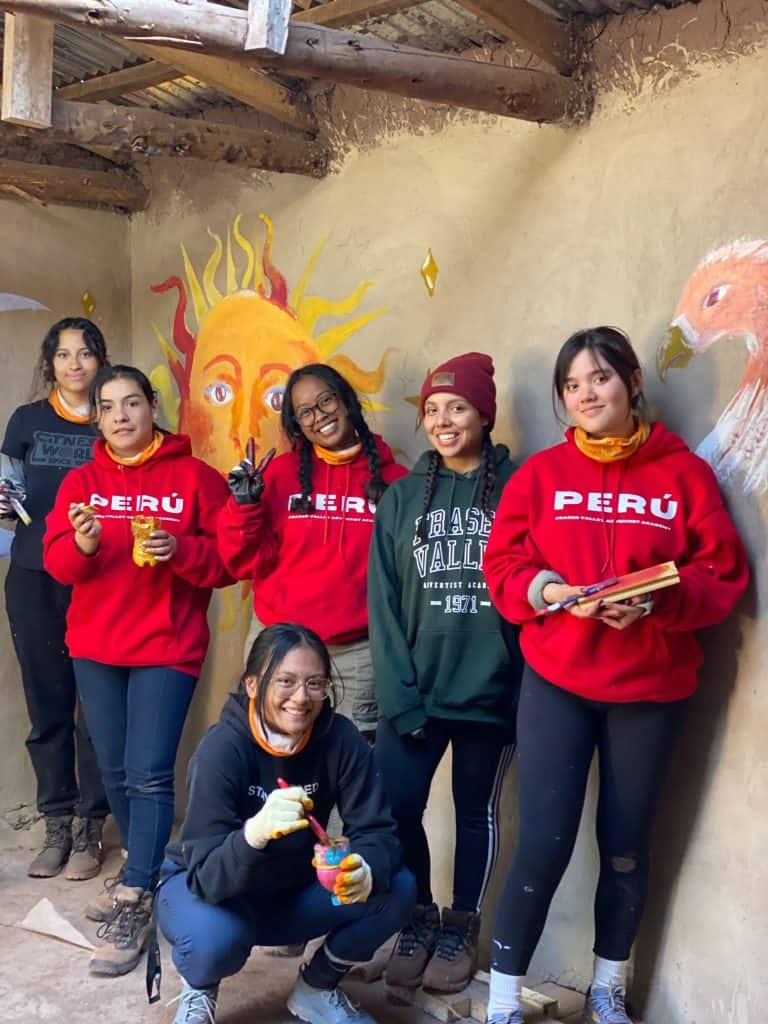
One of the first things ADRA Connections volunteers did in Kusi’s community was bring light into homes. In Kusi’s house, volunteers started by installing a solar panel connected to a battery and then dropped three lightbulbs into her home. Once everything was in place, the volunteers joined Kusi and her family in their home. They stood in a big circle and counted down: “3-2-1!” Kusi flipped the switch. Not only did the room brighten, but Kusi’s face glowed with joy and excitement.
“I’ll never forget her face,” says Adam Wamack, manager of ADRA Connections. “It hit me, she had never seen the inside of her home lit before—never!”
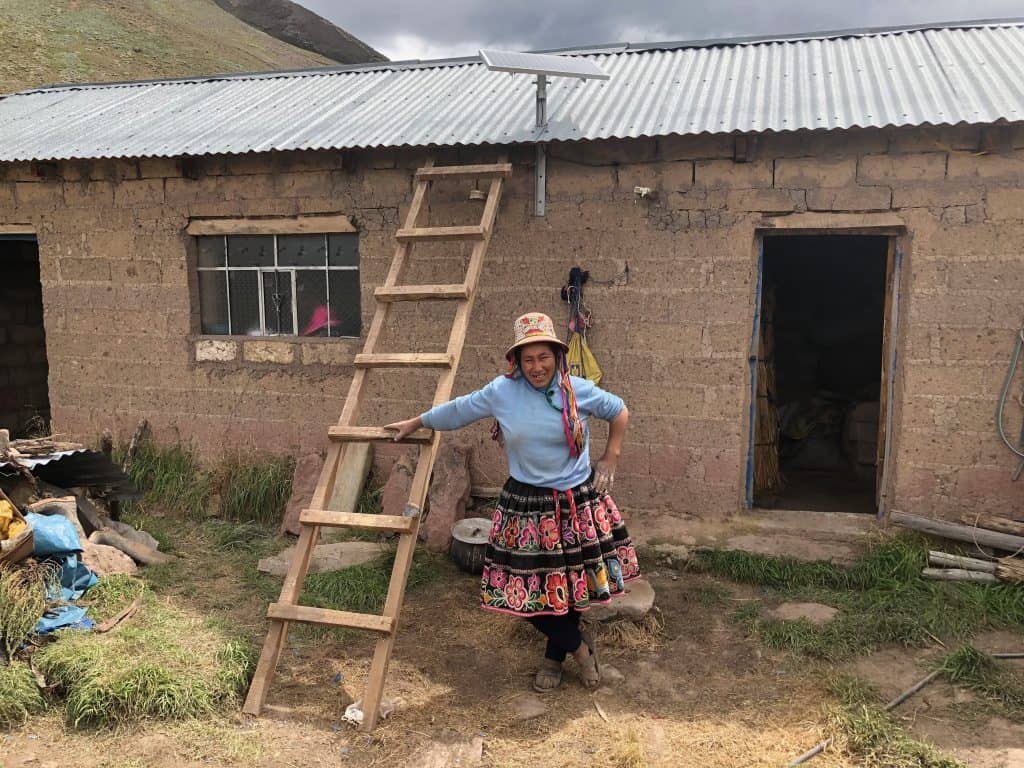
The solar-powered light was just the beginning. Throughout the remainder of the week, Kusi received a smokeless stove to keep her warm and reduce respiratory issues, a tongue-and-groove wood floor to keep her family off the cold ground, a tarp covered in a mixture of tape and glue stapled to her ceiling to prevent heat from escaping, a vestibule door to keep heat inside the home, and a solar wall made of polycarbonate sheeting and PVC tubes to increase the temperature of her home by 10-15 degrees.
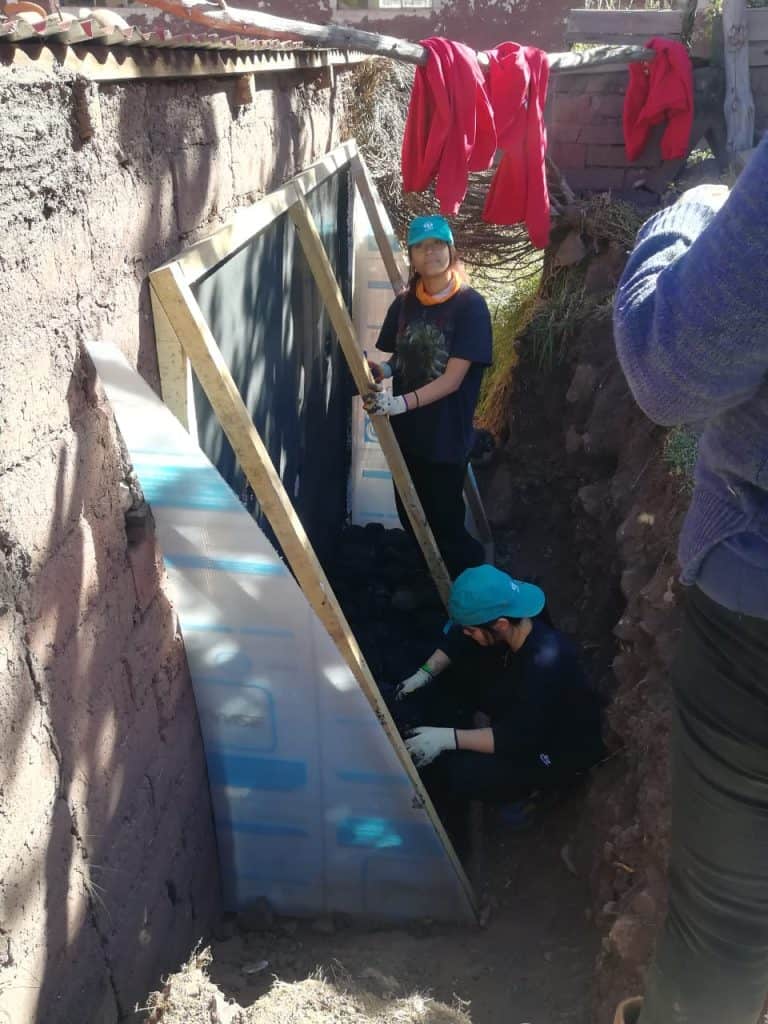
Not only would the new environment be more comfortable for Kusi and her family, but the children would have a warm and well-lit study space, and Kusi would have a bright space where she could continue working in the evening, allowing her to triple or quadruple her monthly income. In the coming months, another team of ADRA Connections volunteers would arrive to assist her with building a decent bathroom and would teach her and her family how to properly wash their hands to prevent intestinal issues.
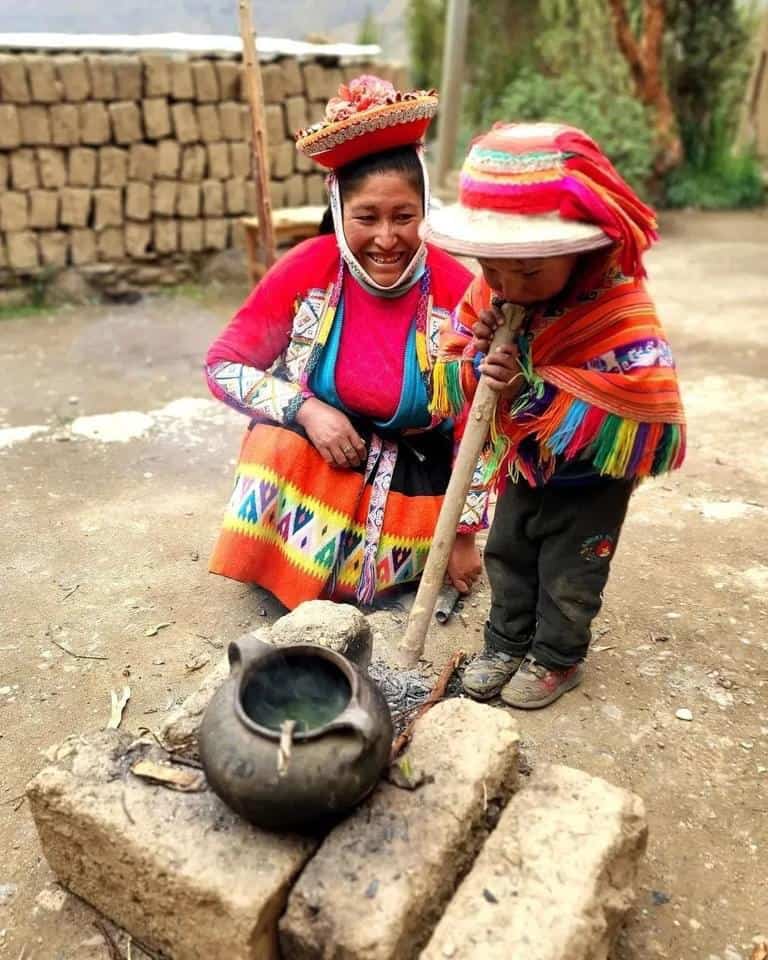
Kusi is just one of many community members in the Andes Mountains whose lives have been transformed by ADRA’s Warm Houses project, which has been ongoing for decades. In fact, ADRA has set up a base camp for ADRA teams in a strategic location with hundreds, if not thousands, of communities within a two-hour commute. From there, ADRA Connections volunteers travel to herder villages to bring light and warmth to their houses.
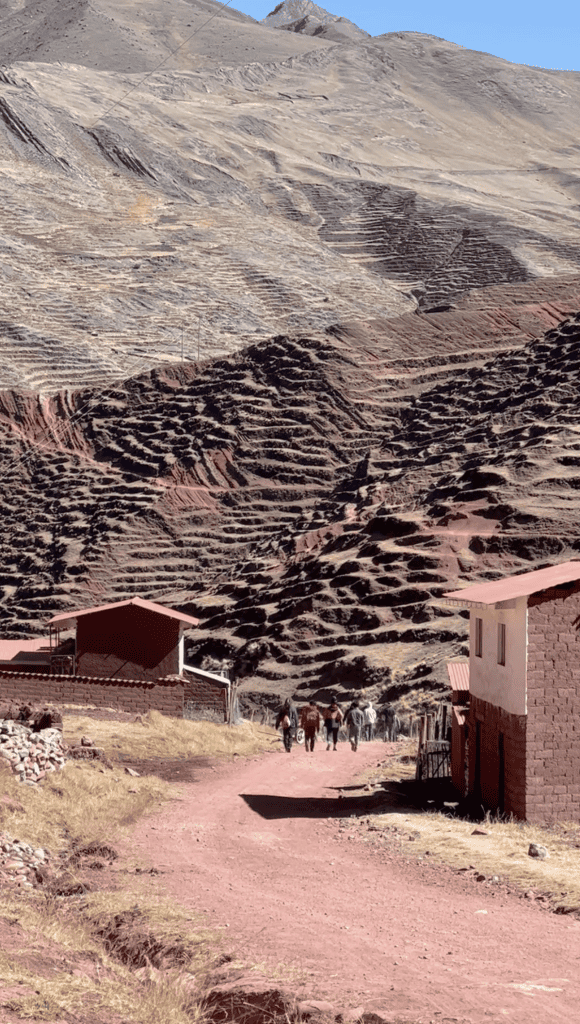
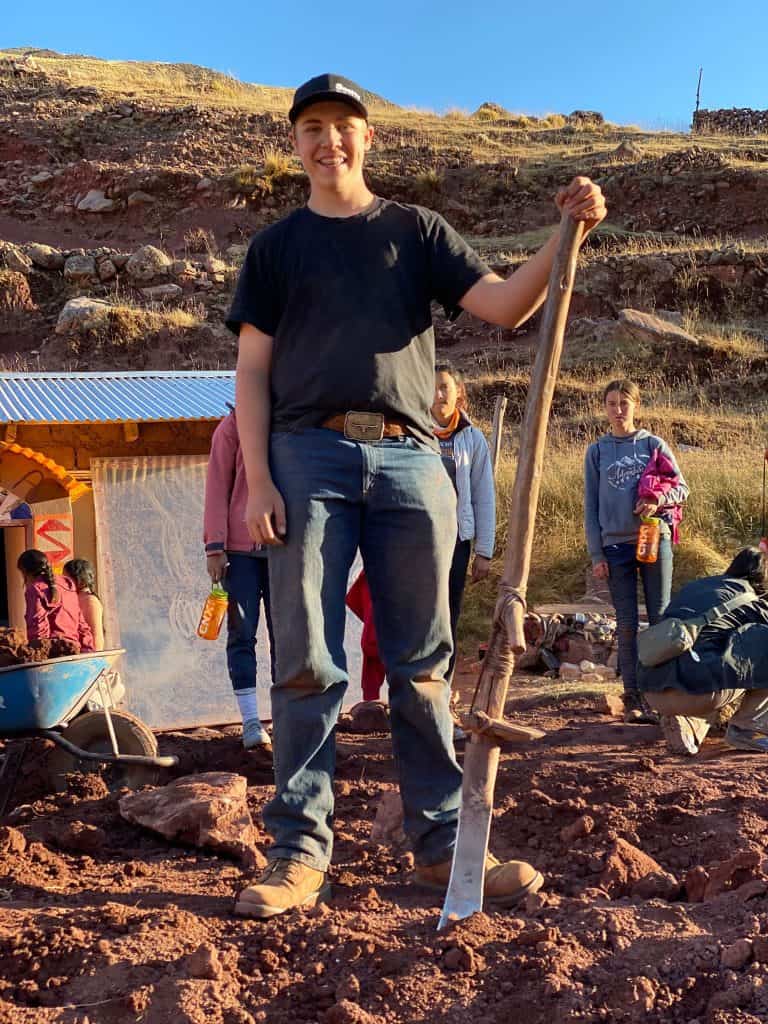
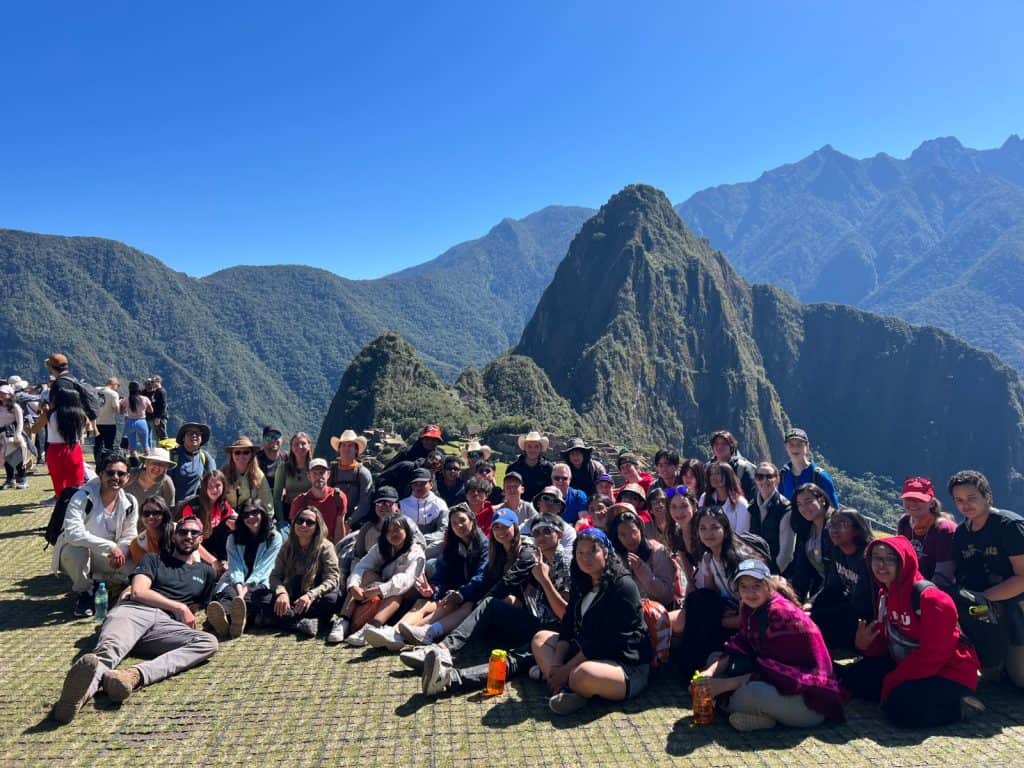
Dr. Martin Luther King left a legacy of helping those in need. He battled not just for the rights of all Americans, but especially African Americans, as well as poverty, which affects millions of people around the world.
In his 1964 Nobel Peace Prize acceptance speech, Dr. King said: “. . . [an] evil which plagues the modern world is that of poverty. Like a monstrous octopus, it projects its nagging, prehensile tentacles in lands and villages all over the world.”
Martin Luther King Jr. Day is celebrated every year in the United States as a reminder to join the battle against injustices including poverty. With opportunities like ADRA’s Warm Houses project all over the world, ADRA Connections allows volunteers to actively combat poverty while also bringing justice to the communities they serve. Donors can also join the fight against poverty by contributing to the ADRA Connections Scholarship Fund. This allows us to band together to defeat the “monstrous octopus” of poverty.
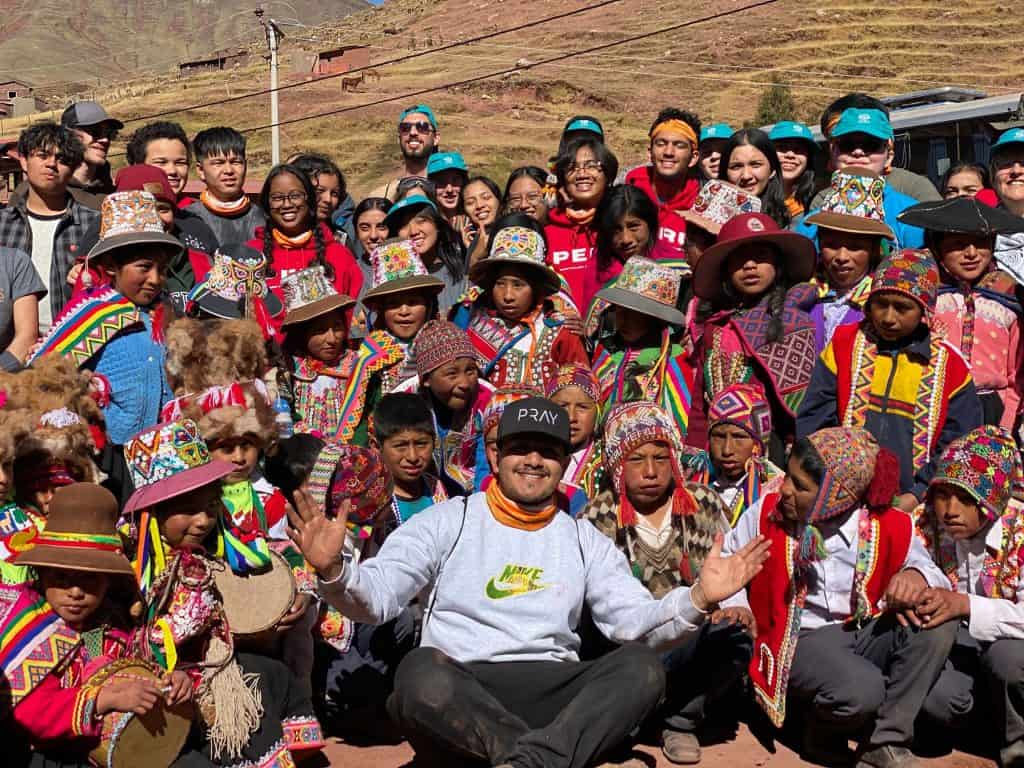
Visit www.adraconnections.org to learn more about joining an ADRA Connections trip, organizing a group trip, or donating to support the ADRA Connections scholarship program.
